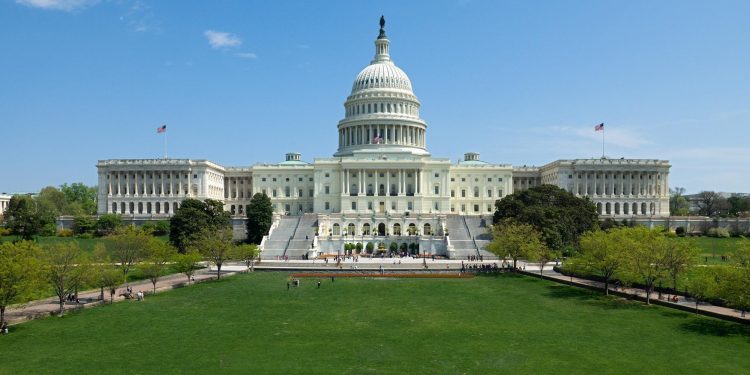Dharamsala: In a historic achievement for the Tibetan government-in-exile, the US Senate Tuesday unanimously passed the Tibetan Policy and Support Act (TPSA) of 2020 that had been stuck at the Senate Foreign Relations Committee since May.
Describing as a historic decision, Central Tibetan Administration (CTA) President Lobsang Sangay, who is currently in Washington, told IANS over phone that the Tibetan Policy and Support Act makes it official the US policy that decisions regarding the reincarnation of the Dalai Lama are exclusively within the authority of the current Dalai Lama, Tibetan Buddhist leaders and the Tibetan people.
“Any interference by Chinese government officials will be met with serious sanctions and be deemed inadmissible into the United States,” he said.
The TPSA was part of the appropriation Bill that was debated and passed.
“I have been in DC for the last five days closely overseeing and finally good to see efforts bearing fruit,” Sangay informed in a tweet.
“By passing the TPSA, Congress has sent its message loud and clear that Tibet remains a priority for the United States and that it will continue its steadfast support for His Holiness the Dalai Lama and the CTA,” said Sangay in a statement.
“It is a momentous landmark for the Tibetan people.”
The bipartisan Bill commends the Dalai Lama for his decision to implement democratic governance and also commends the Tibetan exile community for successfully adopting a system of self-governance with democratic institutions to choose their leaders.
In addition, it formally acknowledges the CTA as the legitimate institution reflecting the aspirations of the Tibetan diaspora around the world and the Sikyong as the President of the CTA.
The TPSA also introduces new key provisions aimed at protecting the environment and water resources on the Tibetan plateau. It recognizes the importance of traditional Tibetan grassland stewardship in mitigating the negative effects of climate change in the region as opposed to the Chinese government’s forced resettlement of the Tibetan nomads.
In addition, it calls for greater international cooperation to monitor the environment on the Tibetan plateau.
American citizens and companies engaged in business activities in Tibet are encouraged to practice corporate social responsibility and to adhere to the UN Guiding Principles on Business and Human Rights.
The TPSA also authorizes a number of appropriations for Tibet and Tibetan related issues including (not less than) $8 million for Tibetan communities in the Tibet Autonomous Region and in other Tibetan communities in China; $6 million for Tibetan communities in India and Nepal; $3 million to strengthen the capacity of Tibetan institutions and governance in exile; over $3.4 million and $4 million respectively for Voice of America’s and Radio Free Asia’s reporting on Tibet and Tibetans; $1 million for Office of the United States Special Coordinator for Tibetan Issues, among others.
Finally, in order to promote access to Tibet as enumerated in the Reciprocal Access to Tibet Act of 2018, the TPSA calls for the establishment of a United States Consulate in Lhasa, the capital city of Tibet.
Until such an establishment, the Bill calls upon the Secretary of State to not authorize any new Chinese consulate in the US.
Built on the landmark Tibetan Policy Act of 2002, the TPSA was introduced to the Congress by the Chairman of the Congressional China Commission and Tom Lantos Human Rights Commission, Jim McGovern, and Marco Rubio.
The CTA President expressed his gratitude to the key sponsors, co-sponsors and everyone who supported the bill, particularly Senators Marco Rubio and Ben Cardin; and Congressmen Jim McGovern and Chris Smith for their “extraordinary leadership” in introducing the Bill in the House and Senate.
“I would like to especially thank House Speaker Nancy Pelosi and Senate Majority Leader Mitch McConnell for their steadfast support in making this historic bill come true,” Sangay, who is at the helm for his second consecutive term, added.
The Dalai Lama has lived in India since fleeing his homeland in 1959. The Tibetan exile administration is based in this hill town.
IANS






































